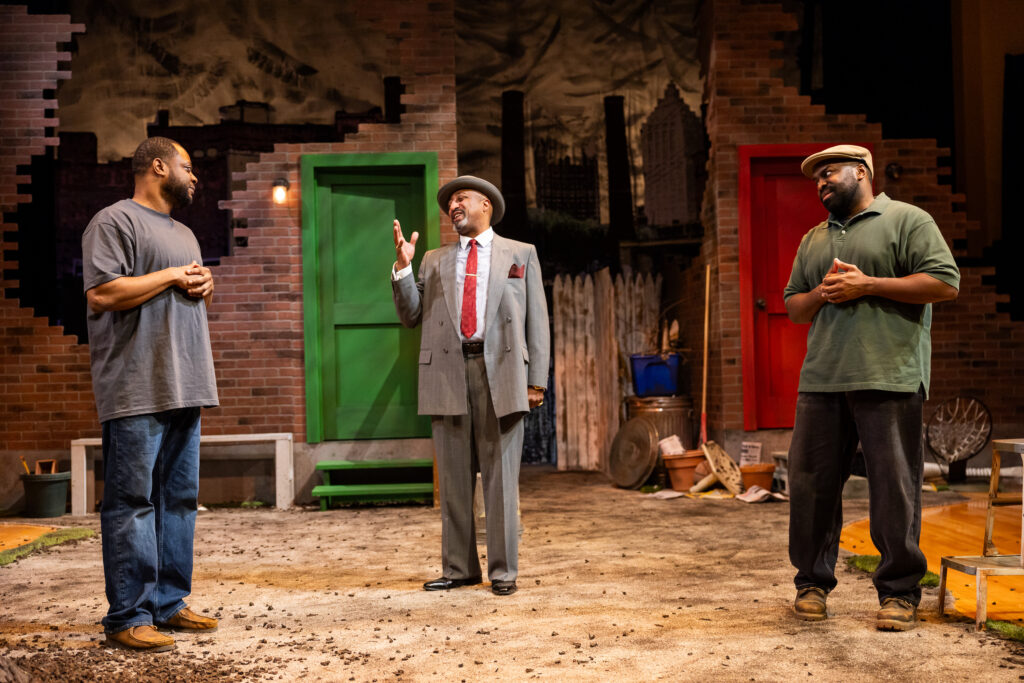
‘King Hedley II’ – Written by August Wilson; Directed by Summer L. Williams; Scenic Designer: Jon Savage; Costume Designer: Becca Jewett; Lighting Designer: Anshuman Bhatia; Sound Designer:Caroline Eng. Presented by Actors’ Shakespeare Project at Hibernian Hall, 184 Dudley St, Roxbury, through April 7, 2024
by Mike Hoban
There’s a folksy adage in recovery circles that goes, “If you always do what you’ve always done, you’ll always get what you’ve always got.” The implication is that if you don’t fundamentally change your behavior, you’re not going to be able to overcome what is keeping you from being your best self – whether it involves booze, drugs, food, sex, shopping, or any behavior that dominates your life.
In August Wilson’s King Hedley II, August Wilson’s Pulitzer Prize-nominated drama, this point is driven home with the force of a Mike Tyson gut punch. It’s 1985, and 30-something King Hedley (James Ricardo Milord) has just been released from prison after serving time for killing the man who slashed his face with a knife, leaving him both physically and emotionally scarred. He wants to build a new life to support his mother, Ruby (Patrice Jean-Baptiste), and his pregnant wife, Tonya (Karimah Williams), but on his terms – which means engaging in the same behaviors that have landed him in trouble in the past. His plan for a new life includes opening a video store in his neighborhood with his friend, Mister (Omar Robinson), and the men have saved up more than half of the required cash ($10,000) to get started.
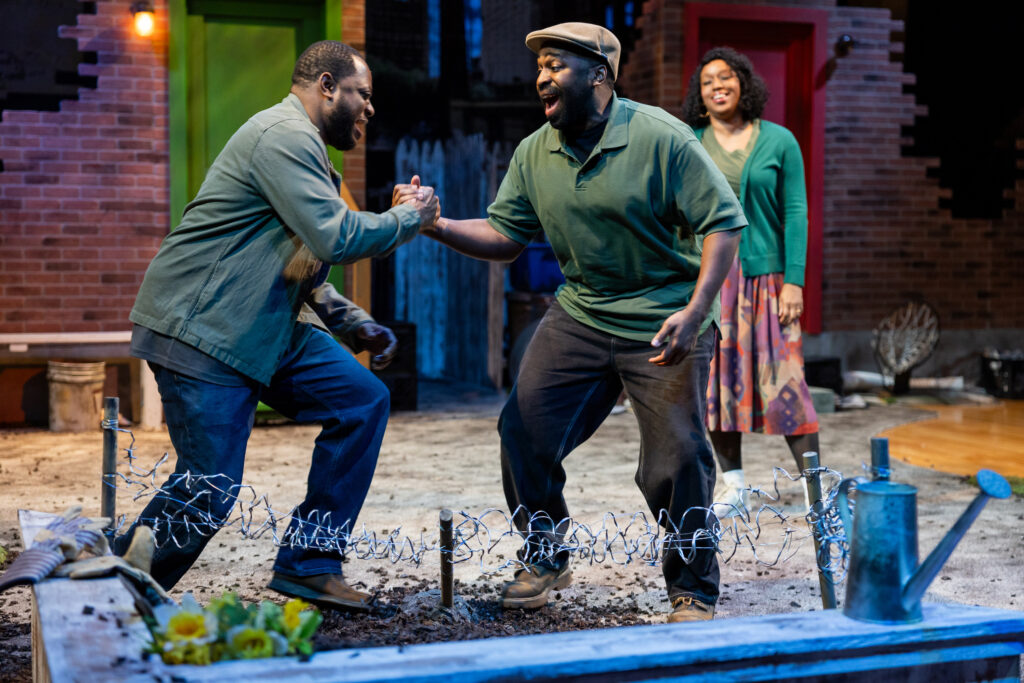
But the business plan has a few snarls. King is out of work, and he and Mister (who has a steady job but is taken advantage of by management) are selling refrigerators – that may not be theirs – to finance their operation. Mister decides to pull $500 from the seed money to furnish his apartment, and King reluctantly agrees. To speed up the financing process for the video store, the men decide to rob a local jewelry store.
As a Black ex-con, King’s employment options are pretty limited, so his rationalization for leveling up systemic inequities by selling hot goods and robbing a jewelry store (“If a burglar break in a white man’s house to steal his TV and the white man shoot him, they don’t say he wrong. The law understand that.”) is easy for him to justify. But King further complicates matters by planning to take out the cousin of the man he killed (before the cousin gets him first) and inexplicably seeks revenge on the Sears store that can’t find the photos he gave them to develop.
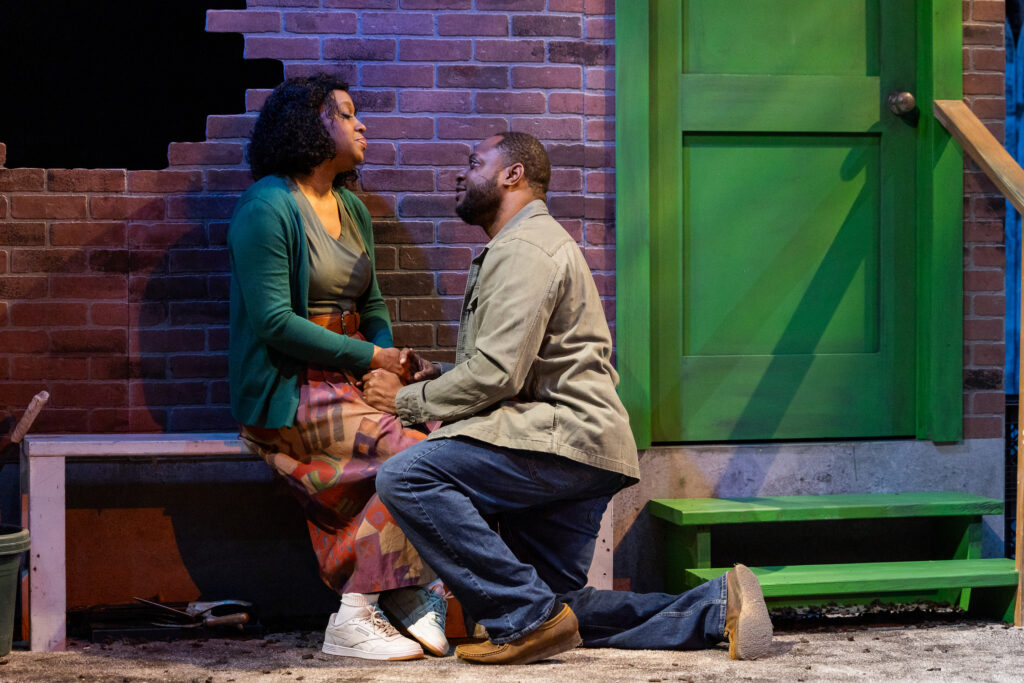
This is too much for his long-suffering wife, who loves King but doesn’t want to raise a baby alone. His explosive temper, criminal proclivities, and terrible decision-making put him on an inevitable collision course with jail – or worse – so she is thinking seriously about having an abortion, which pushes King closer to the edge. His mother, Ruby (Patrice Jean-Baptiste), is equally concerned about her son, but she’s got her own life issues, as her old flame, the smooth-talking, self-described hustler Elmore (Naheem Garcia), unexpectedly comes back into her life on his way to a shady business deal.
King Hedley II has enough plot threads to fill up multiple seasons of a Netflix series. In addition to King and Ruby’s stories, there’s Canewell (Brandon G. Green), aka Stool Pigeon, who’s the spiritual center of the play. He liberally quotes bible passages as he gives a play-by-play of the spiritual implications of King’s next moves, humorously punctuating some of the more powerful verses with, “God’s a bad motherfucker.” There are other backstories, such as the news of the death of 300-yearol old mystic Aunt Ester (who appears in a previous Wilson play, Gem of the Ocean), some of which don’t seem germane to the story being told. Wilson is a master at dialogue, and he lets each of his characters tell their backstory through extensive monologues. The terrific cast delivers beautifully, so much so that Hedley can sound like a ‘Best Of’ version of “The Moth” – with all of the stories set in Federal Hill (in Pittsburgh, where nearly all of Wilson’s 10-play Century Cycle is set).
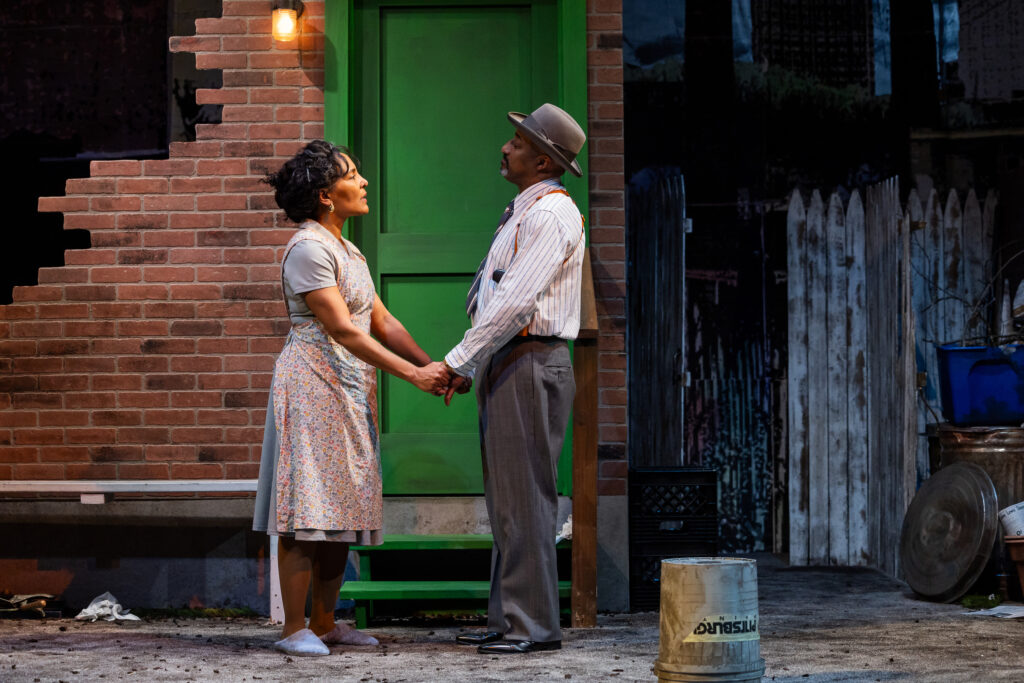
What keeps the play from feeling overly long (at over three hours with intermission) is Summer Williams’ flawless direction and outstanding performances by the cast. As the rage-filled King, Milord is genuinely frightening at times, no more so than at the close of Act I, when he tells those around him that he’s not being treated with the “respect and honor” he deserves. “Now they done had World War I…and World War II…the next motherfucker that fucks with me, it’s gonna be World War III!”
Although the characters are all African-American, and the demoralization of Black people brought on by centuries of systemic racism is woven throughout the play, there is a universal quality to the story, principally the way that poverty breeds desperation. Anyone who either grew up working-class poor or spent significant time with people who did will recognize these characters and how the crush of everyday life is fertile ground for hopelessness. Our choices are more a response to that environment than any moral failing.
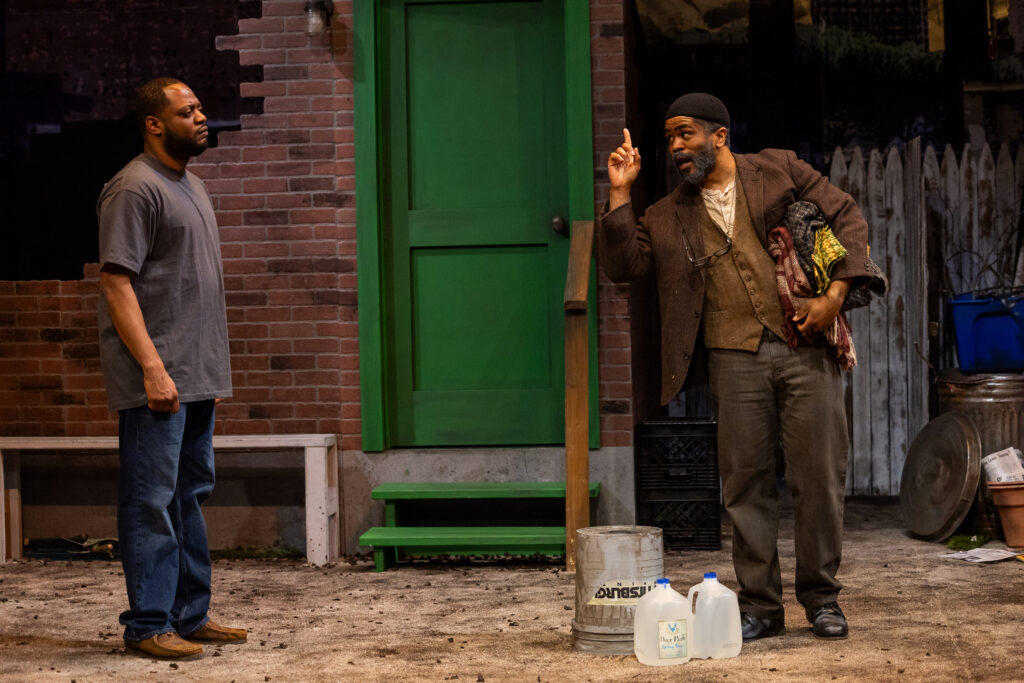
King Hedley II is essentially a time-delayed (40 years) sequel to Seven Guitars, which Actors’ Shakespeare Project staged last year. The production sat near the top of most critics ‘Best Of’ lists (including mine). While most “sequels” disappoint, this one does not. In fact, it nearly rivals it. See it. For tickets and information, go to: https://www.actorsshakespeareproject.org/

